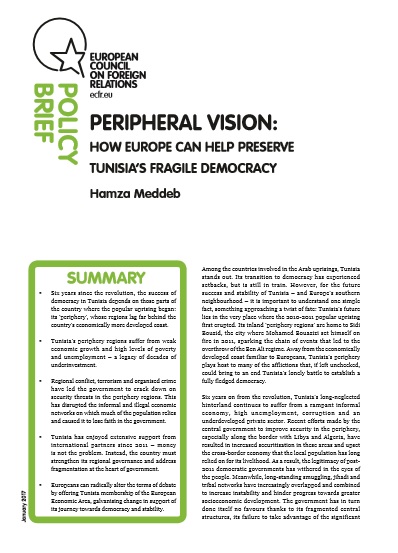Reform from crisis: How Tunisia can use covid-19 as an opportunity
The government must build on its response to the pandemic to create a compromise that shares the burden of reform between political actors and interest groups

ECFR Alumni · Visiting Fellow
Tunisia, Tunisia-Libya border region, political economy in North Africa
Arabic, French and English
Hamza Meddeb is a visiting fellow at the European Council on Foreign Relations. He was a nonresident scholar at the Carnegie Middle East Center (2015- 2016) and a Jean Monnet Postdoctoral Fellow at the European University Institute (2013-2015). He holds a PhD in Political Science from Sciences Po Paris in 2012. His research focuses on the political economy of democratic transition in Tunisia as well as the political economy of insecurity in North Africa.
He is the author of “Smugglers, Tribes and Militias. The rise of local forces in the Tunisian-Libyan border region” (in Inside wars, MED program e-book, EUI, RSCAS, 2016) and the co-author of “L’Etat d’injustice au Maghreb. Maroc et Tunisie, Karthala, 2015, (With Irene Bono, Beatrice Hibou and Mohamed Tozy) and “Market for Jihad. Radicalization in Tunisia”, Carnegie paper, 2015 (With Georges Fahmi).
The government must build on its response to the pandemic to create a compromise that shares the burden of reform between political actors and interest groups

Tunisia’s transition to democracy risks falling foul of the same dynamics that brought down the Ben Ali regime